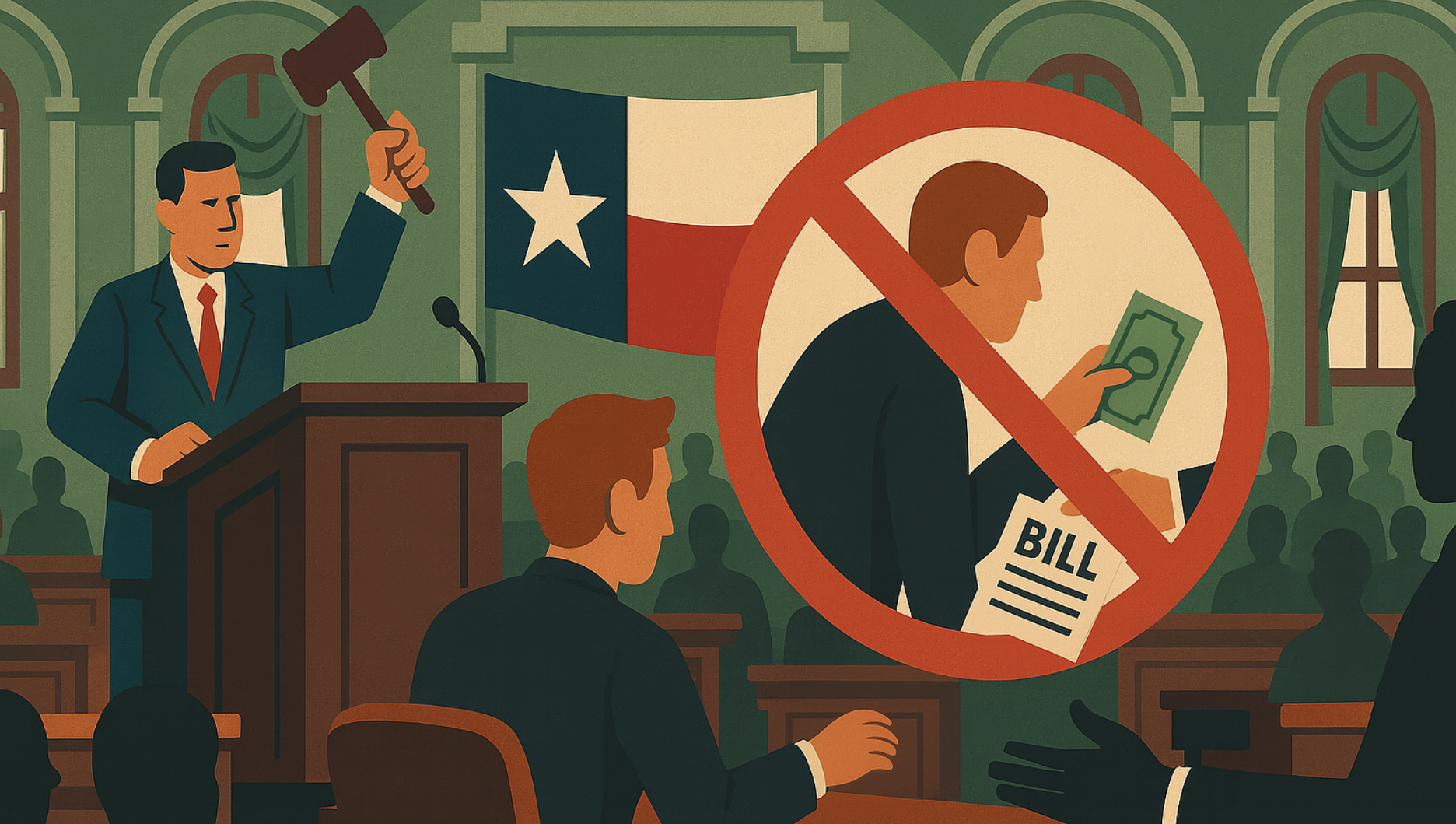The 2025 Texas legislative session is set to begin on January 14th, and with it comes an opportunity to enact meaningful reforms to benefit Texans. For taxpayers, it is crucial to understand the legislative process, key dates, and mechanisms that determine what bills succeed or fail.
This guide breaks down the basics as well as outlines how taxpayers can stay informed and engaged.
Legislature 101: How It Works
The Texas Legislature operates on a biennial basis, meeting in odd-numbered years for 140 days. Composed of the House of Representatives and the Senate, the Legislature is tasked with passing laws, crafting a biennial budget, and addressing issues facing the state. These sessions determine how billions of taxpayer dollars will be spent, saved, and, unfortunately, often squandered.
The Governor can help set the tone for legislative priorities by declaring emergency items, while the Lieutenant Governor presides over the Senate and influences the advancement of bills. The House Speaker, another pivotal figure in the process, guides the House and appoints committee chairs, shaping which legislation receives attention.
Key Dates and Deadlines
The legislative session officially begins on Tuesday, January 14th, with the Governor expected to declare emergency items that can receive priority consideration in the first 60 days of the session.
The following dates should receive particular attention from taxpayers:
- March 14 – Bill filing deadline
- May 12 – Last day for House Committees to report House Bills (HBs) and House Joint Resolutions (HJRs)
- May 15 – Last day for the House to consider HBs and HJRs on second reading for daily or supplemental calendars
- May 24 – Last day for House Committees to report Senate Bills (SBs) and Senate Joint Resolutions (SJRs)
- May 27 – Last day for the House to consider SBs and SJRs on second reading for daily or supplemental calendars
- May 28 – Last day for the Senate to consider all bills and joint resolutions
- June 2 – Sine Die, the last day of the Legislative Session
Taxpayers should pay close attention to these dates, as they frame the timeline for decisions that will impact property taxes, taxpayer-funded lobbying, government spending caps, and more.
The House Speaker Race
As the session begins, one of the most consequential decisions will be the selection of the House Speaker. This individual sets the legislative agenda for the House and determines the makeup of committees, the gatekeepers of legislation.
The two declared candidates are Rep. David Cook (R-Mansfield) who has received the endorsement of the Republican caucus and is promoting a reform of the Texas House, including ending the practice of democrat-chairmanships. The second declared candidate is Rep. Dustin Burrows (R-Lubbock), a Speaker Phelan lieutenant and is seen much more of a status-quo figure.
The House Speaker is chosen by a vote of all 150 representatives on the first day of the session. While traditionally a Republican-controlled process, establishment members have at times collaborated with Democrats, potentially diluting conservative priorities. Taxpayers must demand accountability and transparency to ensure leadership that aligns with their interests.
The Role of Committees
After bills are filed, they are assigned to committees for review. These smaller groups amend and vote on legislation before it moves to the House or Senate floor. Committees like Ways and Means, Appropriations, which crafts the state budget, and State Affairs, are critical in this process.
The power of committee chairs cannot be overstated, as they decide which bills receive hearings and which are quietly killed. Texans for Fiscal Responsibility opposes the appointment of Democrats as committee chairs, a practice that often stalls pro-taxpayer reforms and priorities.
Governor’s Emergency Items
During the first 60 days of the session, only bills designated as emergency items by the Governor may be debated and voted on. In previous sessions, these items have included property tax reform, school funding, and border security. Monitoring Governor Greg Abbott’s declarations will give taxpayers insight on what may move early in the session.
What Taxpayers Should Watch For
Several key issues are poised to dominate the session. Texans for Fiscal Responsibility advocates for the elimination of property taxes, as well as legislation to cap government spending (something that has seen massive increases in recent years). Ensuring taxpayer dollars are not used to subsidize private corporations, and ending taxpayer-funded lobbying by local governments are also top priorities. These reforms aim to protect taxpayers from the overreach of big government and ensure fiscal responsibility remains at the forefront of the legislative agenda.
How to Stay Engaged
Active engagement is essential for taxpayers to influence legislative outcomes. Contacting representatives, tracking bills through resources like the Texas Legislature Online (TLO), signing up for TFR’s bill and vote notices, and testifying in committee hearings are effective ways to make your voice heard. Public input undoubtedly plays a decisive role in shaping the decisions of lawmakers.
The stakes are high for Texas taxpayers. With the right leadership and active citizen involvement, this session can yield victories for fiscal responsibility and limited government. Texans for Fiscal Responsibility will continue to provide updates and analysis throughout the session to ensure taxpayers remain informed and empowered.
Texans for Fiscal Responsibility relies on the support of private donors across the Lone Star State in order to promote fiscal responsibility and pro-taxpayer government in Texas. Please consider supporting our efforts! Thank you!
Get The Fiscal Note, our free weekly roll-up on all the current events that could impact your wallet. Subscribe today!




